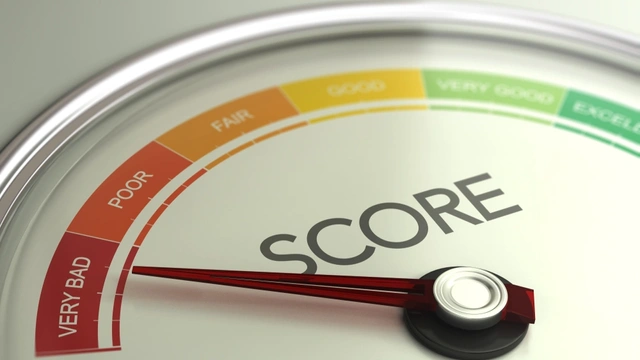Money troubles can happen to anyone. Sometimes people miss payments or struggle to pay bills on time.
When this happens, it ‘adversely’ affects something called your credit history. Having adverse credit may mean it’s harder to be accepted for future credit, but it is fixable.
What does adverse credit mean?
Adverse credit means you have negative marks on your credit file. These marks show lenders that you've had problems managing money in the past. Common types of adverse credit include:
- Missed payments - When you pay bills late or miss them completely
- Defaults - Usually triggered when you miss 3 to 6 payments on a debt.
- County Court Judgments (CCJs) - Legal orders to pay money you owe
- Individual Voluntary Arrangements (IVAs) - Formal agreements to pay back debts
- Bankruptcy - When you legally can't pay your debts
- Debt management plans - Informal arrangements to pay back what you owe
Even small problems can affect your credit score. Missing just one credit card payment can stay on your file for up to six years. The more recent the problem, the more it affects your score.
What is a credit history?
Your credit history is a record of how you handle money. It shows lenders how you've managed credit cards, loans, and other debts in the past. Credit reference agencies like Experian, Equifax, and TransUnion keep track of this information about you.
Each time you apply for credit, make a payment, or miss a payment, it goes on your credit file. This creates a picture of how reliable you are with money. Lenders use this information to decide whether to give you credit and what interest rate to charge.
Your credit history includes details about a number of things, including:
How does an adverse credit history affect me?
Your credit history affects many parts of your life. When you apply for credit (e.g. a mortgage, credit card, or loan), lenders check your credit report. They’ll use this information to decide if you're a safe person to lend money to.
A good credit history can help you get better deals on financial products. On the other hand, having adverse credit can mean you only qualify for lower amounts on loans or credit cards, usually with higher interest rates.
Some employers even check credit histories before offering certain jobs, especially those involving money.
Your credit history also affects:
- Getting a mobile phone contract
- Renting a home (landlords often check credit)
- Getting car finance
- Opening new bank accounts
- Getting insurance (many insurers check credit)
How do you know if you have adverse credit?
The easiest way to find out whether you have adverse credit is by checking your credit reports. You can view your credit history for free with the three main credit agencies in the UK.
Each agency uses a different scoring system, so your credit score will likely differ between them. They might also have slightly different information about you, so it's worth checking all three:
- Equifax
- Experian
- TransUnion
These credit reference agencies will show you how your score sits within their range (whether it's classed as good, fair, or bad credit). They also make suggestions as to why your score is what it is, and what could be done to improve it.
It’s important to check your credit file regularly to spot any mistakes. If you find errors, contact the credit agency to get them fixed. Common mistakes include:
- Payments marked as late when you paid on time
- Accounts that don't belong to you
- Old information that should have been removed
- Wrong personal details
Do applications harm my credit history?
Applying for credit can affect your credit score, but it depends on the sort of search the lender does. There are two main types:
- Soft searches don't affect your credit score. These happen when you check your own credit file or when companies do basic checks for pre-approved offers. Comparison websites often use soft searches to show you what products you might qualify for.
- Hard searches do affect your credit score. These happen when you formally apply for credit like a loan, credit card, or mortgage. Each hard search can lower your score by a few points.
Multiple hard searches in a short time can hurt your score more. This makes you look desperate for credit, which worries lenders. Try to space out credit applications and only apply for products you really need.
Before applying for any credit, use eligibility checkers. These tools use soft searches to show you how likely you are to be accepted without affecting your credit score.
Can I get a loan with bad credit?
Yes, you can still get loans and other credit products with bad credit, but your options might be limited. Specialist lenders focus on helping people with poor credit histories. These lenders understand that people's circumstances change and past problems don't always predict future behaviour.
Types of loans available with bad credit include:
Bad credit loans usually have higher interest rates than standard loans. This is because lenders see you as a higher risk. Shop around and compare rates from different lenders to find the best deal.
Be careful of loan sharks or companies that guarantee loans regardless of your credit history. Legitimate lenders always do some form of credit check. If a deal seems too good to be true, it probably is.
How can I improve my credit rating?
Improving your credit rating takes time, but small steps can make a big difference. Here are practical ways to boost your score:
- Pay bills on time - Set up Direct Debits for all your bills to avoid missing payments. Even small improvements in payment history help your score over time.
- Register on the electoral roll - Being on the electoral register at your current address helps prove who you are and where you live. You can register online at gov.uk.
- Keep credit use low - Try to use less than 30% of your available credit. For example, if you have a £1,000 credit limit, keep your balance below £300.
- Don't close old accounts - Keeping old credit cards open (even if you don't use them) shows you have a longer credit history. Just make sure there are no annual fees and you don’t use them unnecessarily.
- Check for mistakes - Regularly review your credit file and dispute any errors you find. Even small mistakes can hurt your score.
- Build credit gradually - If you have no credit history, start small. A credit-builder credit card can help you establish a positive payment history.
- Pay more than minimums - Paying more than the minimum payment on credit cards shows you can manage debt responsibly.
- Be patient - Most negative marks disappear from your credit file after six years. Your score will gradually improve as old problems drop off your file.
Remember, improving your credit takes time. Don't fall for companies that promise to fix your credit quickly for a fee. Most of what they do, you can do yourself for free.
Your credit history doesn't define you forever. With patience and good habits, you can rebuild your credit and access better financial products in the future. The key is to start making positive changes today, even if they seem small.
Zubin is a personal finance writer with an extensive background in the finance sector, working across management and operational roles. He applies his experience in customer communication to his writing, with the aim of simplifying content to help people better understand their finances.
![Email icon]()
Become a money maestro!
Sign up for tips on how to improve your credit score, offers and deals to help you save money, exclusive competitions and exciting products!
Find this useful? Share it with others!









